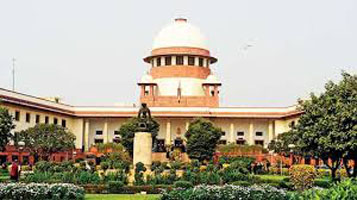NE LEGAL BUREAU
NEW DELHI, MAY 3
The Supreme Court on Saturday strongly defended its “virtual courts system”, saying the institutional requirement was to ensure the “administration of justice” does not crumble in the face of a pandemic.
The apex court, which is hearing only urgent matters through video link, backed its performance during the lockdown with data and said it has heard matters on 22 days until May 1. It said 116 benches assembled during the period, which included 73 benches for adjudicating review petitions.
The practice of holding court hearings through video-conferencing has been criticised by some quarters on the ground that the system does not adhere to the concept of “Open Courts”.
Lawyers have complained that they are facing varied problems from sending a PDF file of their applications to convincing the judge of the urgency of the matter and address their arguments through video link.
According to the data, 538 matters were taken on board by the top court during this period, besides 297 connected matters.
In a 38-page note released on Saturday night, the apex court strongly defended its virtual courts and said, “There cannot be divergent views about the fact that justice cannot be spoon-fed. Justice delivery, even at the door-steps of the stakeholders, requires the stakeholders of the ecosystem to diligently discharge their role and duties, prescribed and required in the scheme of things.
“The advantages of the Virtual Court System, especially in terms of time, energy and money saved by the litigants and counsels in ensuring their presence before a court are innumerable and could be game-changers too,” it said.
Referring to almost 23 countries like the USA, the UK and France, the SC said many nations have been using the virtual courts system but India has been ahead in terms of the output.
“Information available on court and other judicial websites would indicate that in nations hit hard by the COVID-19 pandemic like the USA, UK, EU, France, Italy, Germany, China, Canada, Australia, Singapore etc, judicial organs of the state carrying out administration of justice are mostly relying on virtual court methodologies and online case-management in place in their respective jurisdictions,” it said.
The note said the UK Supreme Court decided 18 cases from February 5 to April 29 and the US SC 28 cases between February 24 and April 27.
“The judiciary of the Indian Republic is known and acknowledged as one of the most robust and progressive judicial institutions around the world, supporting and serving a democratic order.
“The aforesaid data from across various judiciaries, would indicate that crippled as they are by the lockdowns and social distancing norms in place to fight the spread of the COVID-19 infection, few have been able to manage what the Supreme Court of India has delivered, despite being in almost similar circumstances though with much fewer resources,” it said.









